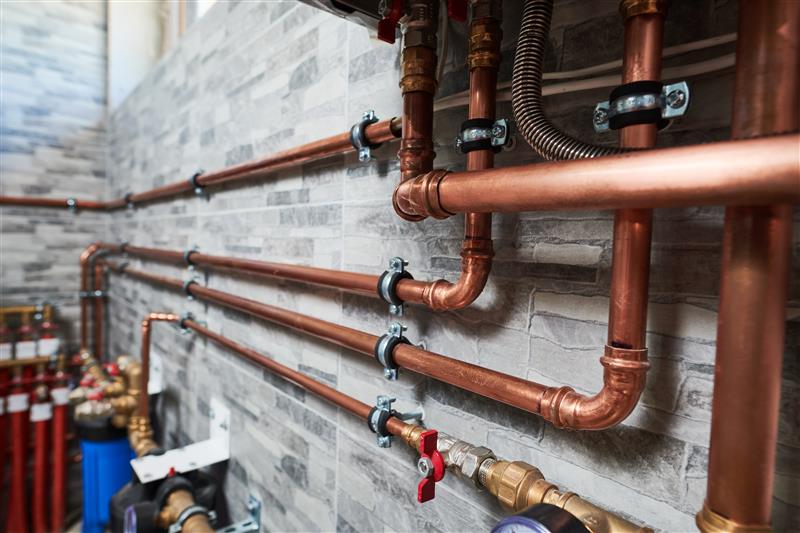
As society increasingly recognises the significance of sustainability and the impact of our actions on the environment, it’s essential that we incorporate greener practices into our daily lives.
Plumbers play a crucial role in determining the impact of our buildings on the environment. The need to adopt sustainable systems and materials is paramount if we are to create a greener future, and young plumbers have the power to create real change.
With an ageing workforce causing an industry skills shortage, there is an urgent need for new plumbing talent. So, how can young people enter the workforce and what opportunities are there to create lasting change for our environment?
The plumbing workforce as it stands
The UK plumbing industry faces significant challenges due to an ageing workforce, with one third of current plumbers over 50 and nearing retirement. Currently, there are approximately 150,000 plumbers in the UK, a 4.19% decrease from 157,400 in September 2005, showing a decline in talent in recent decades.
To fill this gap, by 2032 over 70,000 new plumbers will be required, according to the UK Trade Skills Index 2023. This highlights the urgent need to attract new talent and inspire younger generations to consider careers in plumbing and trade. Addressing this skills gap is also vital in addressing the future sustainability and growth of the industry. More needs to be done to inform young people about the opportunities that are available, such as apprenticeships, and how they can seize them.
The role of sustainability in plumbing
Young people are increasingly aware of sustainability, yet many feel uncertain about how to make a meaningful impact in their daily lives. One powerful way to contribute is through skilled trades like plumbing, as tradespeople can take charge by actively implementing eco-friendly practices.
By changing the use of materials like plastics, the plumbing industry can make strides forward to reduce and limit the impact of construction on both the environment and human health. The construction sector alone is responsible for 40% of global emissions, contributing to 23% of air pollution, 40% of drinking water contamination, and 50% of landfill waste.
Plastics also pose a significant threat to human health – research reveals that microplastics can now be found in 90% of human tissues, including the lungs and liver. These tiny particles result from the breakdown and disposal of everyday plastic products like water bottles, carrier bags, cosmetics, and clothing. Plumbers can help mitigate this risk by opting for alternative piping materials from the outset.

Skills needed to support green transition
Plumbers need to grasp the environmental impacts of different energy systems and materials to make informed decisions that promote sustainability. Knowledge of factors like durability, recyclability, and resource use enables more informed decisions to be made that can minimise harm to the planet and promote long-term change.
While having the knowledge is important, being able to implement solutions is critical to creating a greener future. The adoption of low-carbon heating systems, such as heat pumps, is essential for transitioning away from fossil fuel reliance. By undertaking an apprenticeship and achieving a Level 2 or 3 NVQ or SVQ in plumbing, heating, and ventilation, plumbers can adopt the technical skills needed to install new systems.
Several educational initiatives are emerging to help young plumbers acquire the skills needed to support the green future. For instance, Sheffield College has launched a course to upskill South Yorkshire plumbers and heating engineers in sustainable technology, providing free air source heat pump training for small businesses.
Globally, the Plumbing Champions program is enhancing sustainability in plumbing. At ISH 2023 in Frankfurt, 12 young plumbers from seven countries assembled high-efficiency systems for Eintracht Frankfurt. This effort highlights plumbers’ crucial role in addressing water challenges and promoting sustainable solutions.
Over the next year, the Copper Sustainability Partnership (CuSP) will be hosting educational seminars in local schools and colleges to inspire the next generation of plumbers in the West Midlands. With organisations like CuSP hosting initiatives to create a greener future for all, there are more accessible pathways into the industry for young plumbers.

How copper can create a more sustainable future
Plumbers can implement sustainable change throughout the construction lifecycle by choosing copper and other metals over plastics for supplying heating, water, and gas into homes. During construction, copper’s exceptional durability and resistance to corrosion make it the preferred choice for plumbing; its lifespan of 70-80 years significantly outstrips that of plastic alternatives, while its infinite recyclability minimises waste and resource consumption.
During the use stage, copper’s outstanding thermal conductivity enhances a building’s energy efficiency, resulting in reduced energy consumption and lower carbon emissions. As an excellent conductor of heat, copper is the standout choice for supplying the heat generated by low-carbon heating systems. The benefits of heat pumps also help clients save on fuel costs and align with the UK’s goal of achieving net-zero carbon emissions by 2050.
Finally, at the end-of-life stage, copper can be easily recovered and recycled, supporting a circular economy. By embracing sustainability throughout the lifecycle of a building, plumbers can play a pivotal role in transitioning to a greener future.
Encouraging the next generation of plumbers
Celebrated annually on 29th October, CuSP created Copper Awareness Day to highlight copper’s critical role in fostering sustainability in the built environment. The initiative addresses the growing use of plastic in construction by raising awareness of sustainable materials and offering educational resources.
With the plumbing industry at a critical juncture due to an ageing workforce and rising demand for skilled trades, new technologies, skills, and attitudes must be adopted if the sector is to continue to thrive. Sustainability forms a key part of this agenda for change – and Copper Awareness Day amplifies the importance of materials like copper for our planet’s future.
It’s essential that the sector continues to assess the green credentials of plumbing materials and their lifespan as the UK aims for net-zero emissions by 2050. The next generation are in a unique position to drive change by adopting sustainable practices and championing eco-friendly materials like copper, and there has never been a better time for young people to step into the field.
To learn more about the future of plumbing and sustainability, visit CuSP’s website: https://www.cuspuk.com/.
